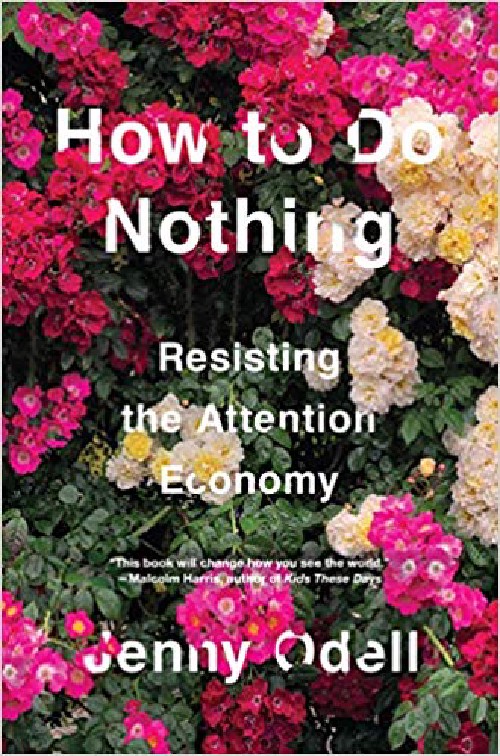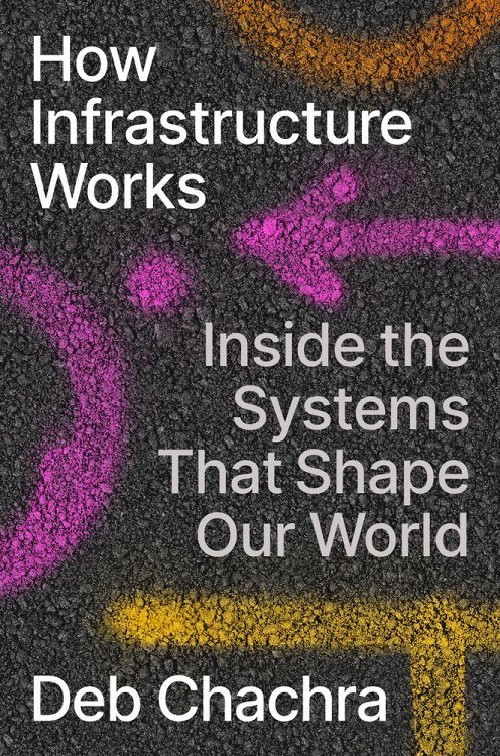When I first encountered Systems Thinking (through Donella Meadow’s book Thinking In Systems) a lot of things clicked into place. All my life I had tried to make sense of patterns and I noticed that the patterns scaled and applied at quite large levels, and finally with Systems Thinking, I had language for all of this.

Thinking in Systems
Copyright 2008, Chelsea Green
Cultural Analysis
Since then I’ve tried to read more Systems literature and found that it’s quite dense. So dense. Some of the hardest prose I’ve ever tried to make sense of. Worth it, maybe, but oh my god.
This post is not that type of writing. I am allergic to dense prose. But I’m interested in defining a concept that I’ve been mulling over for awhile, and I’m going to attempt to do so in this post. I’m writing this preamble because I highly doubt I am the first to notice this or describe it but I have no idea where else it’s talked about in the field of systems thinking. So if what I describe here sounds familiar, uh, great, please point me in the direction where I can learn more!
Every system creates a internal gravity. That’s the core idea. Gravity as we experience it in physics is a direction, a weight, a pull. When I toss something into the air, gravity pulls it towards the earth; down. When rain falls, it falls towards the earth. What we know from physics is gravity is not a constant; if I could wander into space I would experience a loss of gravity and what I have always understood as “down” suddenly becomes much less enforced. Sure I can still point to my feet and say “that’s down,” but without gravity, that is an idea I am imposing, rather than an idea I am deriving from external physics. Gravity is thus very influential on reality, relative to the system I’m currently in.
In systems thinking, a guy named Stafford Beer coined a dictum: “The point of a system is what it does.” This is a somewhat important truth to grapple with, because as humans we often want to point to things like what humans intended to do when they designed a system—or the stories we believe about a system—as the proper ways to understand said system. But intentions and narratives are not always (in fact, rarely ever) aligned with how the system works. And so, when engaging in systems thinking, one of the challenges is to name how the system actually works, rather than naming how we want it to work or how we think it works.
I’ve found that thinking about a systems’ gravity is a generative way of describing what a system encourages. Here’s a few examples to build a picture of what I mean.
The gravity of urban planning: In most of America, we live in a system where the world has been built up such that walking is very disincentivized. Over a century of urban planning has built up a world where the places any person needs to regularly visit are scattered over geographic distances that make walking inconvenient, if not impossible. The urban planners have embraced suburban sprawl, built wide roads, added minimal sidewalks, and because businesses know this system exists, they optimize locations based on where land is cheap rather than where humans live. On top of this, US cities have broadly avoided investing in robust public transportation; most have only bus systems (if there’s any transit) and navigating them is annoying and inconvenient. This is the system that exists. The gravity of this system is therefore that cars are the default. Every human in this system feels like they need a car. Despite the many many reasons to avoid car ownership and usage, the current US system makes having a car is the most “reasonable” way to navigate the world. To resist having or using cars is possible, but you are fighting the gravity of the system. It takes a lot of work and you may constantly bump up against situations where your unreasonableness is frustrating.

How to Do Nothing
Copyright 2019, Melville House
Cultural Analysis
(2nd time reading)
Another system we can look at is the internet. The social web today has mostly shifted towards being controlled by a few large corporations; Meta owns Instagram, Facebook and Whatsapp, Google owns YouTube and email, ByteDance has TikTok and oh yeah there’s Discord. Everyone (it feels) has a smartphone, either Apple-made or one running Android, also owned by Google. These companies (and the companies they stole from/bought along the way) constitute the popular social internet today. If you’re connecting with friends via the internet, it’s almost assuredly via one of these pipes. And the thing about these companies is they have spent almost 2 decades figuring out ways to maximize the appeal of their products, with notifications, algorithms, gamification and every other trick they can find to keep us engaged. The gravity of this system is that it’s easier to pick up a screen and use these corporate pipes to fulfill our social needs rather than all sorts of other activities that might be more generative and satisfying. Our attention has been rewired to pull towards these internet products, whether or not that’s the way we want to use our time. (this is the thesis of Jenny Odell’s How To Do Nothing and that book is wonderful to pair with Natasha Schüll’s Addiction by Design to learn how designers use our psychology against us). Plenty of people resist the gravity of this system, but it requires a lot of intention and work.

Addiction By Design
Copyright 2014, Princeton University Press
Tech Industry
To summarize: the gravity of a system is whatever actions/behaviors/patterns the system incentivizes most heavily. It’s not required; resistance is possible. Same with gravity the physical force! We build massive skyscrapers, we fly planes, hell we escape the atmosphere in rockets. Gravity always exists but if accounted for can be worked around.
My thinking about the gravity of systems emerged out of trying to map the way capitalism works. Perhaps maybe a more accurate way to say it is: I’m trying to map why capitalism is so fucking hard to get out of. We live in this world where money (the “capital” of capitalism) controls everything. Anyone who is interested in building the future depends on access to money, and therefore is constrained by capital. Those with the easiest access to capital also have the most freedom to shape the future as they want regardless of how good their ideas are. Because money derives its power from state-backing, the world we live in is this fun (sarcastic) place where states create and enforce monetary policy, and then are bound to create a national economy where the money is useful and capital flourishes.
This is the system we live in, and this system creates a lot of misery. Immense destruction. It prevents most humans from having a chance to flourish. A broad survey of the billions of people who live in capitalism suggests that the majority of them live in poverty, struggle to provide for basic needs, and have very little agency to change that. And yet, there is a whole class of people who have the money, who control the shape of the world, and who generally think things are ok. And while naming this system design helps clarify why capitalism is such a hard system to change or destroy, it does not help me understand why so many people find it hard to fathom anything outside of capitalism, myself included.
I believe that looking at the gravity of capitalism might be useful in creating space for imagining otherwise.
We cannot survive the future if it perpetuates the status quo. This statement feels very uncontroversial now; climate change is not some distant threat anymore (was it ever, in my lifetime? actually?), every single area of the earth is experiencing weather patterns and seasons that are unprecedented. We know that climate change is caused by greenhouse gases and greenhouse gases are present at their current levels because humans are profligate users of systems that create them. This is our reality, no matter how much some people find political value in believing otherwise.
Appallingly, stopping this system to make space for other futures is turning out to be ridiculously hard. We are barely making progress; every year the parts per million of CO2 in the atmosphere continues to march upwards, with no decrease or otherwise positive change in direction.
I stay aware of this because I read a lot about climate change out of a morbid curiosity. A desperate curiosity? Perhaps both; I want to understand all the ways we are fucking up the future, but also I’m interested to know what options remain, what possibilities have not been foreclosed. 1 There are many possibilities that have not been foreclosed.
As I read about climate change and making the future survivable, one thing is overwhelmingly clear: there are a lot of good reasons to fight for different futures. The essays, books, posts, art and conversations about climate change and the future of humanity talk about things like connection to the land, justice, peace, healing, space for joy, space for creativity, undoing trauma, building community, finding family, and so many other desirable things. Millions (billions?) of humans worldwide are longing for more than simply stopping climate change, they are yearning for a world that feels more livable. A place where the many species we share this planet with can also thrive. A world where water is drinkable, the soil is not filled with industrial chemicals, and we are not trapped in a system that is not genocidal in nature.
Unfortunately, the world we’ve built doesn’t see any of these futures as valuable. Because the human constructed world that exists today only understands “value” as “monetary value.” That’s it. That is the sole dimension we have for defining whether things are valuable or not. And this system has a very strong gravity.
The gravity of capitalism has somewhat consumed me the past year since the idea began forming, both because it gives me a sensible explanation for so many things that are confusing about the world, but also because it points me towards generative ideas about how to destroy capitalism. And lest you be confused about my politics, I would oh so love to see capitalism destroyed.
The gravity of capitalism is monetary value is the only actual value of anything. What I mean by this is: in the human world that exists today, the easiest thing possible in nearly all situations is to prioritize money. All other values and considerations are secondary. Money is primary and all systems (financial, legal, political, cultural) have been designed to enforce this primacy.
To fight for other values than monetary value is to fight against the gravity of the system. And because capitalism encompasses nearly all of human existence today, the gravity is very strong. This would not be too enlightening as an analysis except it is antithetical to how most humans operate and how most people believe the world works.
Here are recent examples of things I can remember people expressing frustration and confusion about:
- Reducing staffing at hospitals and increasing shift times despite nurses and doctors already feeling overworked and stretched thin
- Implementing AI tools that have a very measurable decrease in quality over the humans that previously did the task
- Rezoning farm land to be used for more industrial development
- Forests only being understood as “productive” if they are available for logging
- Colleges moving to adjunct teachers instead of full time staff to manage costs, despite strong evidence it harms learning and teacher health.
- probably dozens more
In each of these cases, there are numerous arguments against the decision; everything from it harms human and ecological health to it decreases the long term value of an organization. But those arguments don’t matter because they require the system to value things other than money and our system does not have that capacity. Humans have that capacity, but the people in power have built a system that lacks that capacity.
This gravity is artificial, to be clear. It is not a natural law that we are powerless to change. It is an emergent property of the systems humans in the west have built up over the past 400 years and exported to as much of the world as they could. But this artificial gravity is nonetheless very real and impacts us continually.
One large impact that I keep noticing is how this gravity affects the way we imagine the future. Every time a possibility opens, our imagination turns to money. Because the system only respects monetary value, we have learned to treat monetary value as proof of other values.
This is true on the small level; think of any time someone shares a hobby or a skill they have. The natural cultural response is: you should get paid for that. Whether it’s an encouragement to turn a hobby into a business, or a suggestion that a skill is good enough to charge for, we understand culturally that getting money for labor is the proper way to say “this labor is valuable.” That is the gravity of the system at work; capitalism has taught us what matters. But there are, of course, so many other ways that labor can be valued. There is the personal value; hobbies and skills might bring one joy, pride, satisfaction, growth, or connection. There is the communal value: using labor for the benefit of others shows love, builds community, opens up space for intimacy and reciprocity. It’s easy to keep going, finding all sorts of values dependent on what the labor is (cooking? nourishment is valuable! gardening? ecology is valuable!). All of these types of values exist and matter, but none of them matter in capitalism unless they can be translated into monetary value. Only then can capitalism understand the value and do our systems recognize the importance of whatever is under consideration.
This is also true on quite large levels. Think of major natural systems we are reliant on: oceans, forests, aquifers. These systems are innately valuable; the earth is inhabitable for humans because they have evolved over billions of years to create an atmosphere and planet that can support us. But in the last few hundred years, white humans in western countries have built up systems that are wreaking havoc on these natural systems beyond what they can repair.
In the oceans, we’ve filled up one with a massive garbage patch of plastic, and another is so affected by the warming earth that a key current is close to collapsing. The garbage patch is making one ocean inhabitable for the millions of species that live in it; if the North Atlantic current collapses the impacts will be felt across multiple continents (and not in a positive way). Even as we can name and validate these crises, our systems worldwide can’t address them. The oceans are uncountably valuable, but they are only valuable in capitalism for what we can extract out of them. Go read articles about the impact of a current collapse, or the impact of larger hurricanes generated by warming oceans, or the impact of extinction due to overfishing. The only way we know how to talk about the value of these impacts is in money, and the money is framed in terms of eventual damage to property or loss of revenue due to industries dying. Capitalism’s gravity prevents us from seeing the value of oceans outside of money.
Worldwide, we are destroying forests at increasing amount every year, which also increases surface heat, eradicates thousands of species, and weakens numerous dependent ecosystems. The Amazon is often in the news for rates of deforestation, but this problem is happening on every continent with forests, and there’s no clear sign that we have any way of changing it. Facing this reality is horrifying; it seems like it should be simpler to stop cutting down trees, to try and protect what exists. But the gravity of capitalism means it’s ridiculously complicated to stop: every tree that is still standing is money to be made. Trees that stay planted cannot generate money; all schemes that try to change this dynamic (Carbon Offsets being the most popular strategy) constantly struggles with the reality that under capitalism, a tree left standing is money left on the table. We can’t value forests in any other way, despite all the other types of value they have innately and culturally. And so we continue to exist in a world where forests disappear on every continent, felled under capitalism’s gravity.
Or consider fresh water aquifers; the way billions of people around the world access the water necessary for daily living. We’ve gotten really good at extracting water from under the earth, and because of that we’ve built up a bunch of industries that are extremely dependent on water; everything from industrial agriculture to lithium mining to bottled water (and much more). The result is that globally we are depleting fresh water reserves far faster than they recover, and because so much of our water usage results in contaminated water, we’re hindering future ability to have clean water as well. But here again we encounter the gravity of the system we’re in: water is only valuable for the ways it helps us make money; there is no clear pricetag (that generates interest or profit) on leaving the water in the ground. That just hinders all the other things that are very profitable! We know where the money is, and we have to follow it. When—in the very near future—we have much less access to clean water, we will understand the many different ways that water has value. But capitalism has decided that is a future problem, for now, the money beckons and the water flows.
As I’ve spent months thinking about the gravity of systems, naming this about capitalism has been helpful. When I see all the suicidal choices humans make at a systemic level I can at least make sense of them; I can see how the artificial gravity of capitalism is making those options the easiest to follow. In no way to I find our destructive, horrible system reasonable or defensible now; in fact naming this aspect of capitalism has increased my disdain for the system and those who defend it. This concept has helped me begin to make sense of two things I’ve struggled with for a long time: why is capitalism so sticky, and why is it so hard for us to imagine things outside of capitalism?
Earlier I proposed that capitalism’s gravity—erasing all value except monetary value— is antithetical to most humans operate and how most people believe the world works. I believe this is actually an insight into why capitalism is so sticky as a way of arranging the world. Most people live and operate inside value systems that are multi-dimensional. We are all the time making choices that stem from things we hold valuable beyond a monetary value; whether it’s out of community value (romance, family, friend groups, community orgs), conceptual value (beauty, challenge, excitement, etc), or any number of things we might personally value. We are all the time embracing the many dimensions that value can have, and often having to consider monetary value as a part of that (because money is often a limiting factor in decision making). For most humans, then, the gravity of capitalism is not all-encompassing. We are regularly factoring in that gravity, but making decisions based on a host of factors.
Most, but not all humans. Some humans embrace capitalism’s gravity wholeheartedly, choosing to accept the proposition that monetary value is the only important value. And those are the people who succeed the most in capitalism. I recently finished reading Brian Merchant’s excellent book Blood In The Machine about the Luddites. I learned a great deal about their fight and context, but one thing stood out to me: in 1812 at the dawn of the industrial age, there was already a gravity at work in the halls of power that monetary value is more important than anything else. The political powers of the day were much more inclined to side with the entrepreneurs (the capitalist class that Luddites were fighting) than the laborers (who, democratically speaking, were the much larger majority). This is because the state institutions were reliant on taxes, and the entrepreneurs were increasing the size of the economy (at the expense of the livelihoods of tens of thousands of workers). The gravity of this early capitalist economy was already against the bulk of the citizenry.
Today, this is still true; the people who most embrace monetary value as the sole way of navigating life are the ones who thrive in capitalism, and by doing so they gain power and influence. Because they align with the system the best, they gain the most power for influencing the shape of the system. This is another way of describing what Marx observed 150+ years ago in his writings. I recognize “capitalists are good at capitalism” is not a particularly shocking revelation, but that’s not the insight for me. What I keep coming back to is my belief that the majority of people do not live or act as if capitalism makes sense. Most people believe there is more to life than money, and they act that way constantly.
The stickiness of capitalism is—if my argument has any merit—in the fact that it is a system built upon greed, and the people who thrive in it are constantly modifying our political, judicial, and cultural systems to make the greed easier. I think at this point I could easily describe capitalism using metaphors like cancer, or bacterial infections, or hell, toxic chemicals being dumped into water. We have a lot of metaphors available for talking about the way some external entity spreads through a system. But as convenient as those metaphors feel; they miss something. Capitalists and capitalism are not external entities infecting or poisoning a system. We’re discussing humans building human systems here—human systems oriented around greed, too simple to handle the complexity of life, too poorly designed to do anything but destroy every good thing on earth.
This is why I keep coming back to gravity. Gravity exists, but it is not definitive. Just because the system makes a thing easiest, does not mean that thing is all-encompassing. I mean look around! Let’s just beat the hell out of this metaphor. On earth, gravity exists and impacts us all, but also millions of gallons of water float above us regularly. Birds spend a large part of their lives in the sky. Trees grow up, defying gravity until they don’t. In capitalism, the thing to focus on is not that it’s so all-encompassing, but that billions of humans ignore it regularly. We value things according to our own systems, and ignore money whenever we can. The problem has been that up until now, we have not fought to make those forms of value meaningful in systemic ways. The capitalists have defined value as money, and the gravity of the system perpetuates this simplistic definition, but most people ignore it, preferring a more robust understanding of value.
I think it’s time we start figuring out how to take these value systems—which are prevalent in so much decision making—and find ways to build systems that account for them, systems that can operate on value in more than just a single, simple dimension.
Which brings me to the last consideration of this piece; why is it so hard for us to imagine things outside of capitalism? As I’ve mulled over the gravity of capitalism and considered all the ways we are hurtling towards an unlivable planet for most of the species that exist on it, I keep coming back to the ways that I and the people around me generally operate as if capitalism weren’t the dominant system it is. We make so many choices that aren’t focused on money, or where money is a factor but not the sole factor. We treat money as a means to whatever ends we care about, not the end itself.
Capitalism is a system where money is the end. Humans and natural resources have been turned into the means which a minority of other humans use to get to that end. That minority has the system on their side right now, but the system was made by humans, and therefore it can be unmade by humans.
Understanding systems as having gravity has helped me ask better questions about them. Using this lens on capitalism has helped me build out the analysis in this essay. The metaphor of gravity has given me one final insight. If a system has a gravity and I’m curious in disrupting or destroying the system, then a reasonable test for whether those goals are being met is by asking: is the gravity the same here?
By which I mean, if I seek to imagine futures beyond capitalism, a really generative question to ask about potential futures is: what’s the gravity like there? I like this question because it takes my focus away from the thing I want to destroy (capitalism)—a goal of negation—and makes me focus on what I want to enable. A goal of creation.
If I remember that humans are already making myriad choices daily that operate outside the gravity of capitalism, I start to get excited about finding ways to make systems that allow for value beyond money. Systems where future access to clean water is valuable now. Systems where hobbies and skills don’t need to have monetary value in order to count. Suddenly imagining worlds beyond capitalism feels a lot easier to me because it involves imagining worlds where all the things we are already valuing in small ways become the things we are also valuing in large ways. I can do that—lots of people are doing that already!
As I’ve worked to get months of thinking into this essay, one idea keeps lingering that feels like the right place to end. I have proposed gravity as a useful metaphor for systems, and then sought to apply this metaphor to capitalism as both a way of talking about why it’s such a horrible system and also as a way of reframing the question of what else exists outside of capitalism. In thinking through all of this, I keep returning to a place we are all familiar with where the gravity of capitalism has been upended, where some other gravity is at work, where we don’t need to imagine a beyond capitalism because it’s already there for us to enjoy.
I keep thinking about public libraries.
Libraries in America are under attack from multiple angles. Many library systems are facing budget cuts (capitalism!) and many states are trying to make librarians liable for doing their job (by making information available to patrons). There’s a lot of shit happening. One could argue, persuasively in my opinion, that this is because libraries really fuck up capitalism.
Public libraries are public spaces where money holds an almost shocking lack of power. They are open to everyone. Many libraries have dropped fines, so there’s almost no financial barrier to access. They provide a multitude of services; access to information, access to entertainment, a climate-controlled space, all sorts of functions for citizen participation (passports, job application help, so on and so forth). The possibilities that a public library creates for members of the community are vast, and often don’t correlate to monetary value. There are a broad varieties of value captured in a library’s function. A public library—even the budget starved, under attack version that many of us have access to currently—is a window to what is possible beyond capitalism.
We should make more windows like this.
We cannot survive the future if it perpetuates the status quo. Capitalism’s gravity is pulling us towards an unlivable future, by creating a present controlled by systems that only understand monetary value. Every year the global economy grows; more monetary value is created, profits are achieved, pockets are lined. The cost of all that growth is widespread human misery, interrupted and weakened ecosystems, extinction and ongoing climate disturbances we are unable to prepare for. But capitalism’s gravity is artificial, not natural. It emerged out of systems we built, and even though those systems are quite powerful, they are not inevitable or immovable. Hopefully we can begin to look around and see all the ways that value is something much more complex than monetary value, and find ways to build systems that center all the things we care about and value the most. Better to try that than simply let capitalism collapse in on itself, in a black hole of our own making.

How Infrastructure Works
Copyright 2023, Riverhead Books
Climate Change, Cultural Analysis
As an example, I recently read Deb Chachra’s How Infrastructure Works and learned that the amount of energy that hits the earth each day from the sun is 10x the amount of energy that would be required for every human on earth to use as much energy as the average Canadian. I learned elsewhere that fossil fuels are super inefficient; something like 40% of the energy they generate is lost in the process of making it usable via an engine or power plant or whatever. “Green” energy sources are much more efficient, often losing less than 10% of generated energy. These two numbers mean… we could theoretically give every human on earth a “first-world” standard of living using only green energy. I had no idea this was even a possibility! ↩︎



